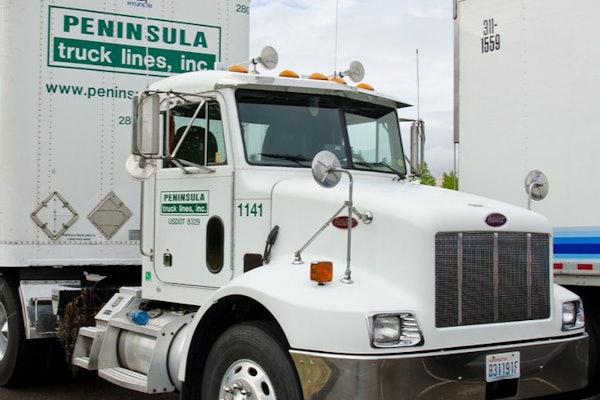The Canadian Trucking Alliance, a federation of Canada’s provincial trucking associations representing more than 4,500 trucking companies, unveiled a 14-point action plan to drastically reduce smog and greenhouse gas emissions in the freight transportation sector. The proposed measures are contained in a document entitled Trucking & a Made-in-Canada Clean Air Act.
According to the CTA, they would be the environmental equivalent, in terms of air quality, of removing more than 200,000 trucks from the road. As part of the plan, CTA is urging the federal government to give tax incentives to trucking companies who adopt new smog-reducing technology.
The federations’ chief executive officer, David Bradley, says the trucking industry “shares its workplace with the public” and takes its environmental responsibility seriously. “Trucking is the dominant mode of freight transportation in Canada and will continue to be so,” Bradley says. “As such we have a major role to play in ensuring that air pollution and greenhouse gas emissions are minimized.”
This fall will introduce new truck engines that are required by law to reduce the emissions of particulate matter, a major contributor to smog linked to respiratory illness, by 90 percent. In addition, ultra-low-sulfur diesel fuel, which reduces the sulfur content of truck diesel from 500 to 15 parts per million, will be introduced into the marketplace. “The advent of the smog-free heavy truck is happening,” Bradley says. “The key will be to accelerate the penetration of these vehicles into the total fleet.”
The CTA also is proposing measures to increase the installation of auxiliary power units to reduce truck idling and is calling upon ministers of transportation from across the country to endorse a proposal requiring the speed limiters on all trucks to be set at no more than 105 kilometres per hour. Quebec recently included a similar measure in its action plan on climate change, and Transport Canada currently is studying the idea in Ontario.
In addition, the federation suggests increasing the use of single, wide-base tires, which offer significant fuel savings, but which currently are restricted to certain truck weights and dimensions based on standards developed in the 1980s. The same standards also act as an obstacle to incorporating non-payload aerodynamic improvements and other vehicle design enhancements.
“There are challenges and some obstacles to doing what needs to be done – not the least of which is that the federal and provincial governments have split jurisdiction over trucking regulations – but the opportunities are so significant to reduce emissions from our industry, we are hoping that the federal and provincial governments will work with us to make the plan a reality,” Bradley says.
The plan also calls upon governments to define clearly which biodiesel blends are being considered for trucks; to run joint pilot programs to ensure that operational concerns associated with using biodiesel in the new trucks in Canadian conditions are addressed; and to introduce and enforce stringent quality, manufacturing and testing standards before considering a mandate for biodiesel use in commercial trucks.
Finally, CTA is proposing that other freight modes – rail, marine and air – should be subject to the same type of fuel and engine emissions standards as trucks, given that they also affect air quality and produce greenhouse gas emissions.









